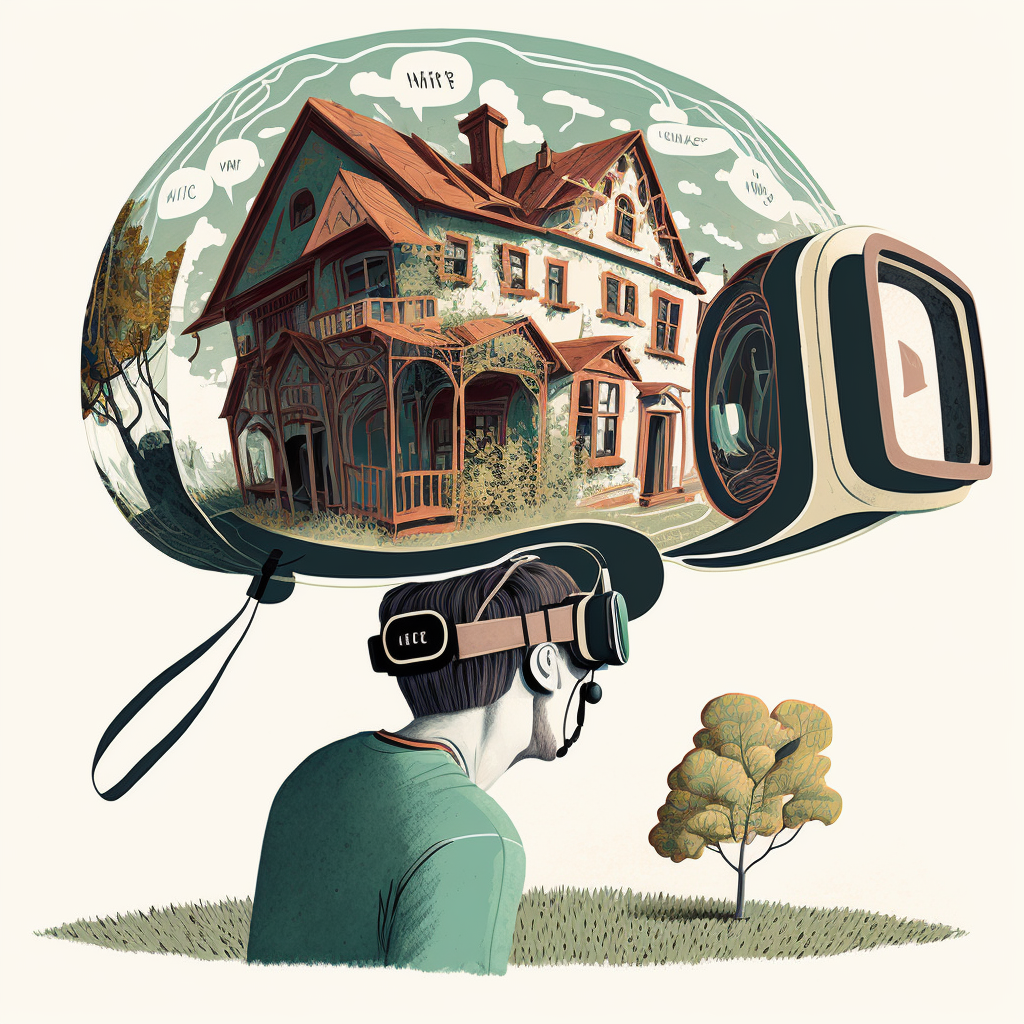Real Estate Virtual Reality: The Future of Property Showings
Virtual reality (VR) for real estate is a technology that is fast gaining traction in the industry. Even if they are not physically there, real estate brokers may use virtual reality to provide prospective buyers a totally immersive and interactive experience of a home.
Agents may develop a 3D model of a property using virtual reality technology, and then offer prospective buyers a tour of the space using VR goggles. In order to give potential buyers a feeling of what it would be like to live in the house, the VR tour might incorporate developed interventions, such as the ability to alter the color of the walls or add furniture. Virtual walkthroughs may be integrated into VR tours as well, giving customers an idea of the layout.
Virtual reality in real estate offers purchasers the chance to explore a property from the convenience of their own home, which is one of its main advantages. This may be especially useful for buyers who are spread out across the nation or even the globe because it allows them to still get a feel for the home without having to fly. Additionally, it gives buyers the freedom to go about the house at their own time without feeling rushed or under pressure from a real estate agent.
Virtual staging, which may be utilized to show off a property's potential, is another benefit of VR technology. A residence may seem more appealing and occupied by adding furniture, decorations, and other items using virtual staging. For properties that are vacant or have been on the market for a while, this can be extremely helpful.
Additionally, real estate brokers may effectively present a home using VR technology. Physical staging, open houses, and the expense of travel for buyers and brokers are all rendered unnecessary. Agents can benefit from time reductions as a result of not having to schedule many viewings for a single property.
Finally, virtual reality technology is swiftly emerging as a precious resource for real estate brokers. Even if they are not physically present, realtors may use VR to provide prospective buyers a fully immersive and interactive experience of a home. It is an economical technique to present a property and may be utilized to create virtual staging. Real estate brokers should start utilizing virtual reality technology to differentiate themselves in a crowded market as it is obvious that it has the potential to transform how real estate is purchased and sold.

